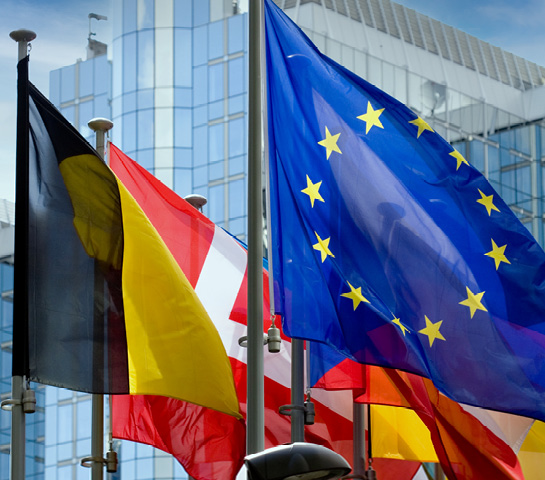Digital sovereignty: Delos Cloud as a model project?
To drive innovation, Europe needs powerful, secure and trustworthy technology. Digital independence is therefore the EU’s declared goal. In Germany, a consortium of SAP and Arvato is currently building the first sovereign cloud in a strategically important area: administration.
German ministries and authorities are turning to the cloud – for the digital transformation, such a highly scalable and flexible environment for an almost unlimited number of applications is the key element. But building a comprehensive cloud landscape is almost impossible without the American hyperscalers such as Amazon Web Services, Microsoft and Google. This raises fears of dependencies, loss of transparency and control as highly sensitive data is being handled.
SAP and Arvato have set out to develop a sovereign solution by the end of 2024: the Delos Cloud. The infrastructure is based on Microsoft technology. With their joint venture, however, the two German partners want to ensure that data does not flow into the USA and is protected from uncontrolled access from outside, both technically and legally.
Completely independent operation
Three elements are to ensure the sovereignty of the Delos Cloud:
- the technology runs strictly separately from Microsoft.
- the two owners of the operating company are subject to German jurisdiction.
- the joint company will own all the data centres that are created, operate them itself and control them as well as the software.
“Microsoft itself cannot see any data in the Delos Cloud,” says Georges Welz, CEO of Delos Cloud GmbH. IT systems and data centres are physically separated from each other. Part of the security concept is that updates are first checked by the German Federal Office for Information Security (BSI), and functioning of the platform is guaranteed at all times even if certain updates are rejected.
Drivers of a new administration quality
The new platform fits in with the German government’s digital strategy, which basically pursues the same goals as the Gaia-X and Catena-X data ecosystem projects at the European level: a “multi-cloud structure” and openness for open-source products are to prevent dependencies and promote secure data exchange. In line with this, SAP and Arvato are planning to use the Delos Cloud in combination with existing solutions. As a sovereign cloud platform, it is intended for information such as classified documents, whereby a functional equivalence with the public cloud in the high 90 percent range is targeted. For less sensitive areas, other options can be used.
At the same time, the goal is that all standard software can be used via the Delos Cloud without specific adaptations. In addition to Microsoft and SAP, other IT service providers can offer their own developments and compatible apps there. Georges Welz also has start-ups in his sights. “Administration IT is adapting to the pace of innovation in the cloud,” he says. The platform also acts as a pacemaker, which will first boost the IT of the administration and thus the development of new applications.
Attractive market
However, it is not yet certain whether the Delos Cloud will win the race as the German administration cloud. There are no orders and financing pledges from politics yet, but they are expected. Besides, the competition is on the subject as well. T-Systems is also working with Google on a sovereign solution for the public sector, for companies and for the health industry. Other German providers like Ionos are also aiming for government contracts, as are AWS, Microsoft, and Google – at least when it comes to anything other than the highest data protection standards. If the Delos Cloud passes the test in the end, however, that would be the starting signal for full use in German ministries and authorities.
There is no question: sovereignty is moving the cloud market in Europe. Cloud technologies offer enormous potential for scaling innovations – and sovereign multi-cloud strategies contribute significantly to exploiting it. They make it possible to provide, collect and share data in a trusted environment without users losing control over it. This is of particular interest to the financial and the public sector. But sovereign data ecosystems are also gaining importance across sectors and borders. All the more so because IT sovereignty has become a strategic issue.
More insights

Global Gateway – clear signals to the world economy

Climate protection versus energy crisis? Rethink now!

M&A in logistics – demand is high, but so are the risks
Get in touch
Contact
Phone +41 41 500 05 31

